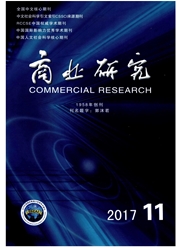

 中文摘要:
中文摘要:
本文选取我国50家城市商业银行2005—2014年度的非平衡面板数据进行随机效应回归,研究资本缓冲与银行风险及绩效之间的关系效应,并分析异质性产权结构对资本缓冲与银行风险和绩效关系的影响。实证结果表明:现阶段而言,我国城商行资本缓冲对银行风险和绩效分别有着抑制和激励作用,且分别为“u”型与倒“u”型影响,同时最优值点基本一致;国有产权性质削弱了资本缓冲对银行风险和绩效的抑制和激励作用,而存在境外投资者持股则能够促进资本缓冲对银行风险的缓释和对银行绩效的激励作用,但后者效果并不显著。因此,逆周期性的资本缓冲监管在我国城市商业银行的治理过程中应予以重视。
 英文摘要:
英文摘要:
This paper used an unbalanced panel data of 50 China's city commercial banks from 2005 to 2014 to carry out random effect regression, studied the influence of capital buffer on bank risk and performance, and also analyzed the effect of heterogeneous property right structure on the relationship of capital buffer with risk-taking and performance. Em- pirical analysis results show that at the moment, the city commercial banks' capital buffer has the role of inhibition and excitation to risk-taking and performance respectively, and the effect of capital buffers on bank risk and performance are "U" and inverted "U" type respectively, at the same time, the optimal value point is basically identical; in addition, under the nature of state-owned property, the influence of capital buffer suppressed risk-taking and incentive bank per- formance has been weakened; although foreign investors holding can promote the effect of capital buffers' release on bank risk and incentive on performance, but the latter is not significant. Therefore, we should attach sufficient importance to the counter-cyclical capital buffer regulation in the process of governance of our country's city commercial banks.
 同期刊论文项目
同期刊论文项目
 同项目期刊论文
同项目期刊论文
 期刊信息
期刊信息
